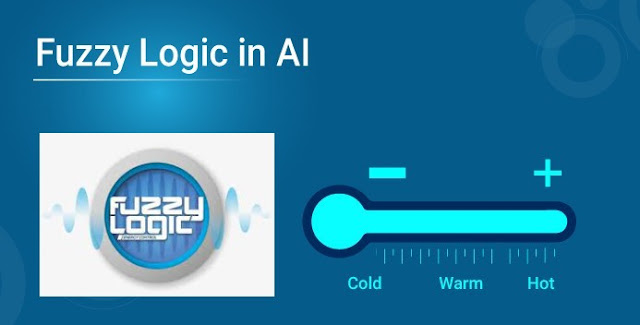Computers only understand 0 and 1. True or False, Yes or No. But we humans can think differently than 0, 1. Continuous thought to whom. A computer can run in Prussian But people think of a high level. People think that Fuji Logic just thinks about the computer.
In traditional logic, we report something like 0 or 1. Fuzzy logic can take any value between 0 and 1. When someone is tall, we don't say they are six foot two. We say he is tall. When we are outside, we do not say that today's temperature is 30 degrees Celsius. We say it's very hot today. By telling the computer today's temperature, how many degrees Celsius it will say. Hot cold, you won't say. Fuji Logic is working on making the computer think like a human.
 |
| Fuzzy Logic! Fuzziest Logics of Digital World. |
Fuzzification module: Traditional data entry into the verification module. Then they split them into a fuzzy set.
Knowledge base: The knowledge base is defined by different rules. Basically IF-THEN rules.
Inference Engine: Based on the Rule of Knowledge Base input for infrared engine, it simulates the way people think.
Defuzzification module: The defuzzification module again converts the fuzzy set in the infusion engine into a triple set, which is called the crisp set.
Fuzzy logic is a type of mathematical logic that allows for approximate reasoning, in contrast to classical or Boolean logic which only deals with precise or binary values. In fuzzy logic, variables can have values that range between 0 and 1, and the truth of a statement is expressed as a degree of membership in a fuzzy set.
The concept of fuzzy logic was first introduced by Lotfi Zadeh in the 1960s as a way to deal with uncertainty and imprecision in decision-making. Fuzzy logic has found many applications in fields such as control systems, artificial intelligence, and natural language processing.
One of the key advantages of fuzzy logic is that it can handle complex and vague concepts that are difficult to define precisely, such as "hot" or "tall". Fuzzy logic can also be used to model human reasoning and decision-making, as it allows for the expression of degrees of certainty or confidence in a statement.
Fuzzy logic is a powerful tool for dealing with uncertainty and imprecision in a wide range of applications, and it has the potential to improve decision-making and problem-solving in many fields.


0 Comments